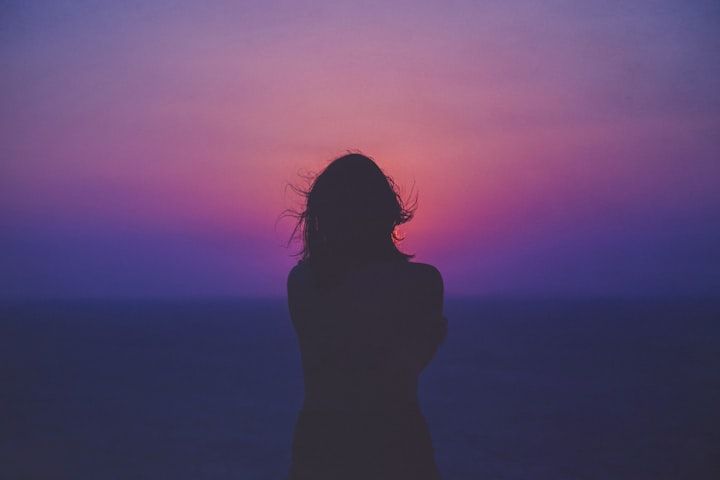Why It's Ok For a Person With Cancer to Reject Positivity and Not (Always) Be Brave
On the societal expectations of bravery from a former cancer patient's perspective

In my experience as a person who went through cancer, I often felt that there was a societal expectation that people who get cancer are inherently brave or magically more positive than anyone else.
I think it needs to be talked about more, because it brushes our real feelings about the experience of cancer conveniently away for anyone who would rather not have to deal with it in a psychologically harmful swoop.
There were a few years after my diagnosis and treatment for aggressive Non-Hodgkin’s Lymphoma at the age of twenty-eight/nine when I felt particularly adrift. I had largely hidden my depression/terror it might come back any day, without really knowing how to express that as a member of the post-cancer club.
I didn’t want to disappoint anyone I guess. After all, I was a cancer SURVIVOR. It seemed selfish to bring anybody down with my less than amazing internal mental state. Everyone was so cheered and inspired by my making it through, it felt like I at least owed them a happy face.
For a year after I finished treatment, people would positively beam anytime they heard I was done, proclaiming “YOU ARE IN REMISSION! HURRAH!” (or something to that effect), when in fact my oncologist was unwilling to use the “R” word to describe my case. After eight rounds of chemotherapy and twenty-eight red beams of radiation to the chest where my tumour was, unfortunately, there was still a tiny something there.
It was too small to call anything, they speculated it was most likely scar tissue, but it was enough to keep me on a “wait and see” sort of cancer limbo list. I would apologetically mumble something about this situation to people who offered congratulations on my remission because chemo + still alive = remission to everybody fortunate enough to have never experienced it directly.
But I felt like a disappointment anytime I had to correct people on this. They would smile awkwardly and say something cheerful about how I was certainly through the worst of it now though, right? So I would smile/nod as gamely as I could, wanting nothing so much as the ground to open up and swallow me whole.
If that sounds melodramatic, I apologize, but after eight months of politely absorbing the feigned positivity of anyone unfortunate enough to be put in the position of trying to say something well-meaning to a twenty-nine year old with a rare form of lymphoma (I had my birthday the week of my second round of chemo in January, fun times!), I was losing the will to pretend everything was going to be just fine.
I hoped it would, obviously, but I had lost much faith in my physical resilience. Going from being a healthy person to the opposite end of the spectrum in one fell swoop felt like the world had forever altered (and it had), and yet it seems many people expect a person with cancer to go back to “normal” almost right away.
When I began trying to write about my experience as a person with cancer, many months after it was (thankfully, truly!) over, I became overwhelmed with an onslaught of many suppressed feelings of anger and loneliness that my cancer experience had left me with. I would start to write, but the suppression of so much of it when I was going through it meant I mostly just cried a lot.
I was trying to capture something I hadn’t even begun to process emotionally, to mimic a feeling of post-cancer jubilation and inspiration that didn’t exist for me. I didn’t feel victorious. I felt like a failure for not being more cheerful and grateful to be alive.
I felt imposter syndrome (not that I knew what that even was back then, other than the feeling of it) for not being an inspirational girl with cancer who races out of the post-chemo gates by running marathons and raising lots of money, for not being the brave, bald, conquering hero that the world seemed to expect me to be.
Cancer was a major bummer, and it was seemingly my job to make it ok for other people to comfort themselves that it was a scary thing that happened to me. As in, “Hey, what a fluke, I know, but not to worry! Surely it won’t darken your or anyone you love’s doorstep (Phew!) because you know ME”.
Being that freakish statistic to be checked off in any group of people felt like I drew the short straw, and now everyone else could breathe (this is just how I felt sometimes, anyway).
Not that everyone wasn’t rooting for me. There were churches praying for me, shawls being knitted, all that jazz. But it didn’t make me feel less alone. It made me feel like even more of a confirmed “other” in this land of the sick I was navigating.
I do want to say I had wonderful love, support and care from those who were closest to me: my husband of only two years at the time was a devoted marvel of patience and attentiveness, and my mother, who had to fly across an ocean several times over to see me during treatment, went through hell and back in their own ways I am sure. But it was also hard for me to burden them with my fears because I could see how terrified they were.
It was frankly a rare occurrence if anyone opened the conversational door even a tiny crack to ask me how I was doing on a real level. I was not allowed to die, so entertaining anything of the sort was not to be discussed.
I had never heard the term “toxic positivity” back then, maybe it didn’t exist yet. But I knew that the increasingly alienated way I felt about the experience I was going through being minimized with pat “You just have to stay positive”, “You can do it, just be brave/strong!” isms seemingly everywhere I went, felt lonely and eventually, infuriating.
There are probably people who appreciate these pep talks, I guess (maybe the girls who run marathons after cancer!).
Going through an out of the blue, aggressive cancer diagnosis at my age was a shock, an aberration, and the fact that almost no one wanted to talk about it beyond the superficial level of what was happening with my treatment was a very surreal feeling.
I think most people mean well, and often there are no right words to offer someone. I know from personal experience at the other end that you want to try to support a loved one and it’s almost impossible to do so without saying something inherently untrue that you can’t possibly guarantee.
It’s why, and I felt a bit strange/would not have admitted this at the time, my appointments with my oncologist were often the best interactions during treatment for me.
This was likely because he was the only person who could look me in the eye and acknowledge my reality. He offered no platitudes, promises, or even odds (although it’s possible I was merely very lucky to have him as my doctor, I also had some awkward experiences with other doctors who really did not know how to talk to me during this).
It made me feel comforted and less alone to have someone simply tell me the unfiltered truth in a calm, assured manner, and what needed to happen to hopefully make it go away. I guess it was one of the few instances where it felt like my cancer experience was not being denied or glossed over.
The rare moments of occasionally uncomfortable shared acknowledgements of my reality are the ones that I remember that comforted me during this time.
The old friend who said, “That must have been really scary” a couple of months after my treatment was over, and I did the usual “Yes but it’s fine now” routine which would normally be all anyone wanted to hear.
But they repeated it a few times, until my conditioned reaction to shrug it off was worn down. And then automatic, grateful tears appeared, and words that didn’t involve false assurances on either side were spoken. A door was opened to share my fear, which made me feel seen in a way that I had gotten used to NOT being seen.
In my experience cancer had a way of making me feel simultaneously more alive (fear of imminent death is a potent buzz!) and yet less a part of humanity as it progressed. I definitely felt “outside” of the majority of the world around me, and when most people talked to me, it felt like the discomfort of my situation was something they would rather get through as quickly as possible. I felt invisible often.
It feels good to be seen, even if it hurts or scares the people that love you, or brings your own reality home for you just for a moment. That is probably very selfish, but it’s also human.
People with cancer need to be allowed to be imperfectly human in general, a lot more than we are. Those of us who get through it didn’t beat cancer because we are special, we* are just lucky, and still terrified, and so grateful it physically aches, and in a state of shock, we have likely held in while we were busy trying to stay alive.
That should all be something we are allowed to express out loud. We see people all the time in the hospital who we know are not so lucky, we feel survivor’s guilt, we stare death in the face in the mirror for months, if not years afterwards.
So please, don’t patronize us with platitudes that trip off the tongue a bit too easily, or pretend what we are going through isn’t really freaking hard or magically over the minute we finish cancer treatment.
Please just tell us what you really think or are scared of. Please talk to us and ask us questions like we are the same person you know, because being reminded that we exist without cancer is important.
Cancer isn’t what you think it is (ok some of it may be), but honestly, we are going through a lot of dark and weird stuff and it would be nice to feel like it’s ok to talk about it sometime.
It’s maybe a lot to ask, but not much has changed that I can see in the way society treats this stuff in the eighteen years since I finished cancer treatment. So I’m going to keep asking it of anyone who will listen. Thank you for listening.
(*the use of “we” is figurative here, in case it offends any less grumpy than me cancer types!)
This article was originally published on Medium by the author.
About the Creator
Steffany Ritchie
Hi, I mostly write memoir, essays and pop culture things. I am a long-time American expat in Scotland.






Comments (1)
I have taken care of so many cancer patients, and a lot expressed the same sort of feelings.. saying it was difficult to talk to anyone, to really express themselves because their family members were crying, instead of the one with cancer. I guess I have always tried to encourage them to not have to be the strong ones, when they were the ones sitting there getting chemo with a fake smile.. anyway. I cant imagine what it is like to go through something like that.